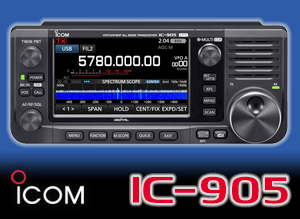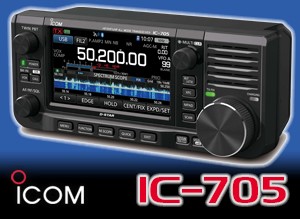RSGB response to latest Ofcom statement on power line adaptors
Ofcom forced to release PLT test report
The Information Commissioner has forced Ofcom to release a test report that it commissioned on Comtrend PLT devices, as used in BT Vision systems, after an appeal by Peter Walker G0RSQ. Ofcom had previously refused to release the report on grounds provided by exemptions under the Freedom of Information Act. However the Commissioner disagreed and told Ofcom it must release it.
The report dated September 2008 was commissioned to reputable accredited test house ERA Ltd. It shows that Ofcom were aware of the report’s conclusion that Comtrend power line adapters were not compliant with the EMC Regulations (which implement the EU EMC Directive) a full year before they said they had no evidence of non-compliance, and before the RSGB’s own formal complaint about these devices.
The ERA report (14-page/148KB PDF) says “It is considered that the Ethernet Power Line Adapters do not meet the Essential Requirements of the EMC Directive; emissions could potentially cause interference to communications equipment.”. The Essential Requirements of the EMC Directive include that equipment must be designed and manufactured so that the electromagnetic disturbance it creates does not exceed a level above which radio and telecommunications equipment or other equipment cannot operate as intended.
The report continues that “Declarations of Conformity for both types of adapter refer to the EMC Directive and refer to standard EN55022:1998 and CISPR/I/89cd. The latter was a draft only that has now been withdrawn and should not be referenced on a DoC. The former standard is not complied with based on the testing reported herein.” The report also says that the DoC for a third device tested refers to a Technical Construction File referenced XXXXXXX, which was not an acceptable reference.
While radiated emissions failed by up to 10.88dB at a few spot frequencies, conducted emissions, from 2 to 27 MHz were up to 39.4dB above the limits apart from discrete notches in the main amateur bands. This is much in accordance with pre-compliance tests done by RSGB and tests commissioned by others at accredited test houses.
Despite being aware of the report’s contents in September 2008 and having had many subsequent actual complaints of interference, as forecast by ERA, it was not until a year later in September 2009 that Ofcom released a statement that said “On the evidence, Ofcom has not so far found that there is a breach of the EMC essential requirements. Ofcom has therefore decided against taking further enforcement action at this time”.
Furthermore Ofcom had been in receipt of the ERA report for 10 months when in July 2009 the RSGB submitted its formal complaint to Ofcom about Comtrend PLAs (5-page/944KB PDF). The Society’s case was precisely that contained in the ERA report—that a withdrawn committee draft (which proposed derogations from the limits in Standard CISPR22, the parent of EN55022) could not be relied upon as evidence of compliance and that the limits in the remaining standard were breached by some 30dB across much of the HF spectrum. Ofcom’s reply on 25 September 2009 (1-page/152KB PDF) did not address these points at all but simply referred to the September statement.
It is now quite clear that Ofcom was in possession of a report that it commissioned itself before the Society’s formal complaint was made, the report having apparently been requested in the light of a rising number of interference complaints that appeared when BT Vision systems were brought into service. Thus Ofcom clearly ignored the evidence of its own commissioned report. It is hardly surprising that in view of the report’s results and conclusions that Ofcom did not wish the ERA report to become public.
In subsequent discussions Ofcom has said that failure to meet a standard does not mean a product is non-compliant. However, while the use of Harmonised Standards is not mandatory, where they are used they provide a “Presumption of Conformity”. The EU’s official Blue Guide to Directives confirms this and adds that Harmonised Standards must match the Essential Requirements. It also says that where a manufacturer chooses not to follow Harmonised Standards they must prove that their products meet the Essential Requirements by other means, for example the use of existing technical specifications. The RSGB has argued that a withdrawn committee paper was not an existing specification that could or should have been used. The ERA report confirms that. Ofcom has chosen to ignore these obvious points.
The RSGB believes that Ofcom has been disingenuous, has misled its spectrum-user customers and had failed in its statutory duty to enforce the EMC Regulations. These are serious matters for the protection of the spectrum and for Ofcom’s position as a regulator. The Society does not intend to let this rest. We are considering how to take this forward and will keep the membership informed.
Radio Society of Great Britain
May 2011
Category: PLA-PLT










